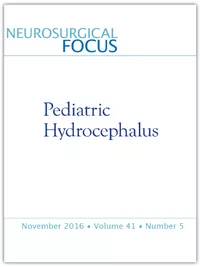Authors: Ryan T. Muir, BHSc, Shelly Wang, MD, MPH, and Benjamin C. Warf, MD

Published in the Journal of Neurosurgery, July 2016
Page Range: E11
Volume/Issue: Volume 41: Issue 5
DOI link: https://doi.org/10.3171/2016.7.FOCUS16273
Significant health disparities exist for the treatment of hydrocephalus in developing nations due to a combination of medical, environmental, and socioeconomic factors.
This literature review aimed to provide the international neurosurgery community with an overview of the current challenges and future directions of neurosurgical care for children with hydrocephalus in low-income countries, and current international efforts to address the problem.
Unique challenges pertaining to the treatment of hydrocephalus in the developing world include a preponderance of postinfectious hydrocephalus, limited resources, and restricted access to neurosurgical care. In the 21st century, several organizations have established programs that provide hydrocephalus treatment and neurosurgical training in Africa, Central and South America, Haiti, and Southeast Asia. These international efforts have employed various models to achieve the goals of providing safe, sustainable, and cost-effective treatment.
Recommendations include a broader commitment from the pediatric neurosurgery community, increased funding, public education, surgeon training, and ongoing surgical innovations to address the global burden of untreated hydrocephalus.
Read the article: Global surgery for pediatric hydrocephalus in the developing world: a review of the history, challenges, and future directions





